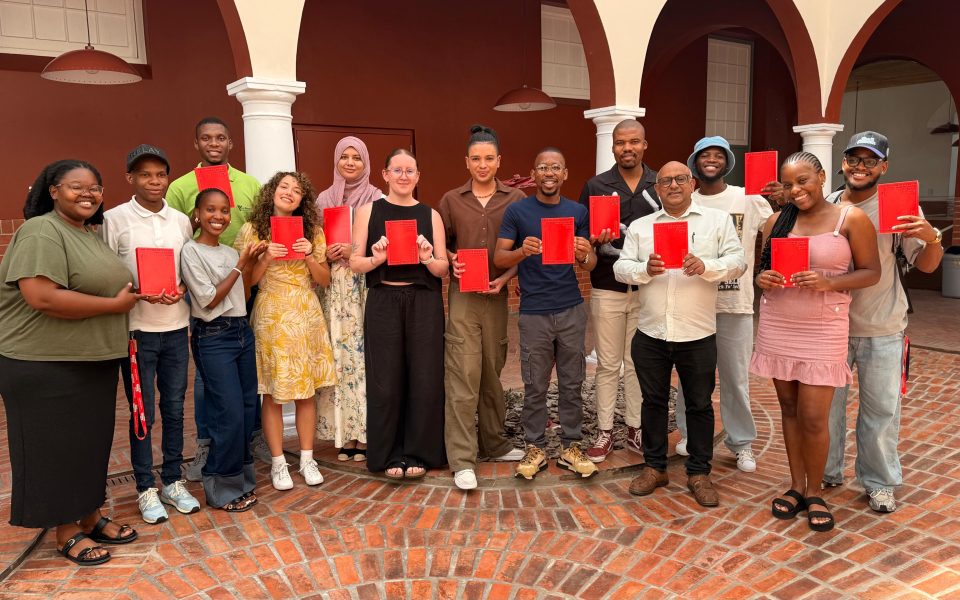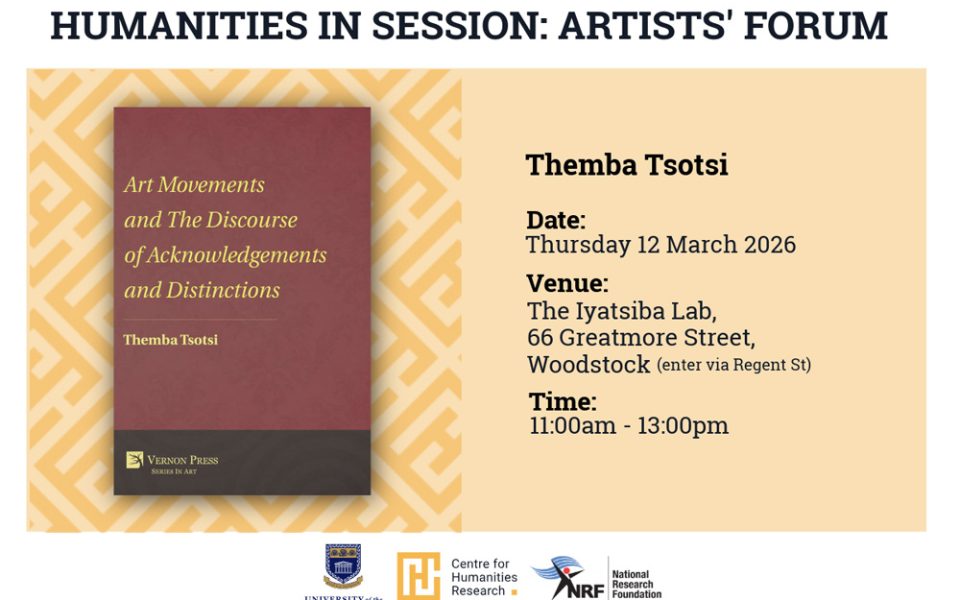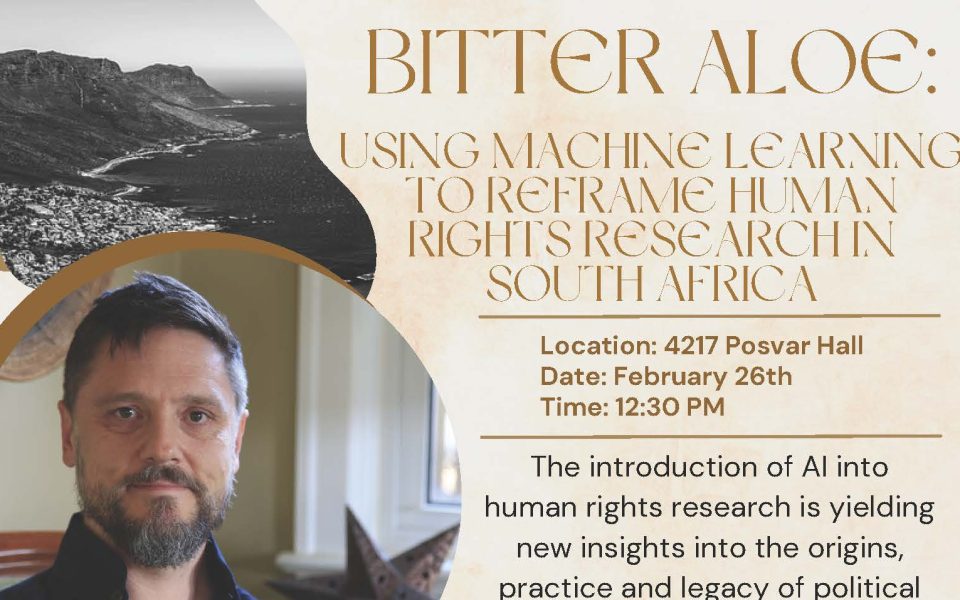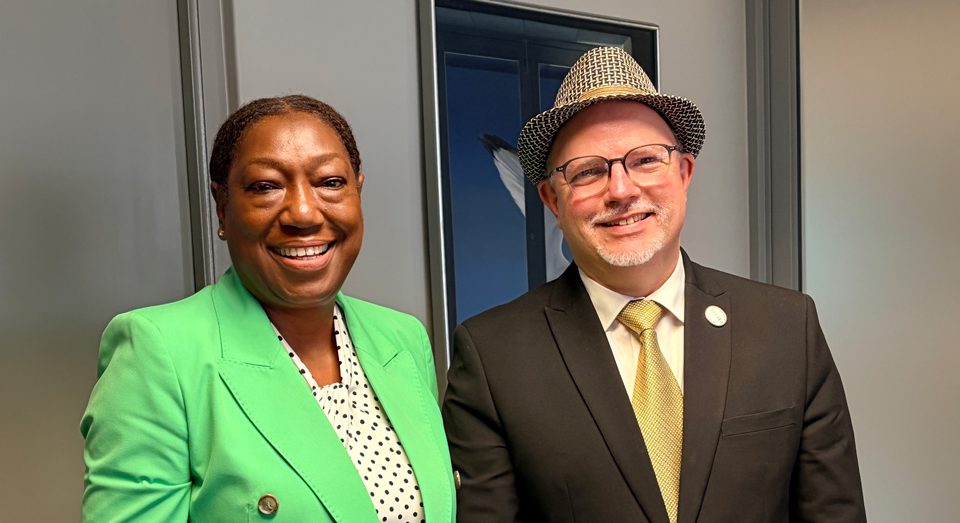The Curricular and the Global, the Tropic and the Taxonomic
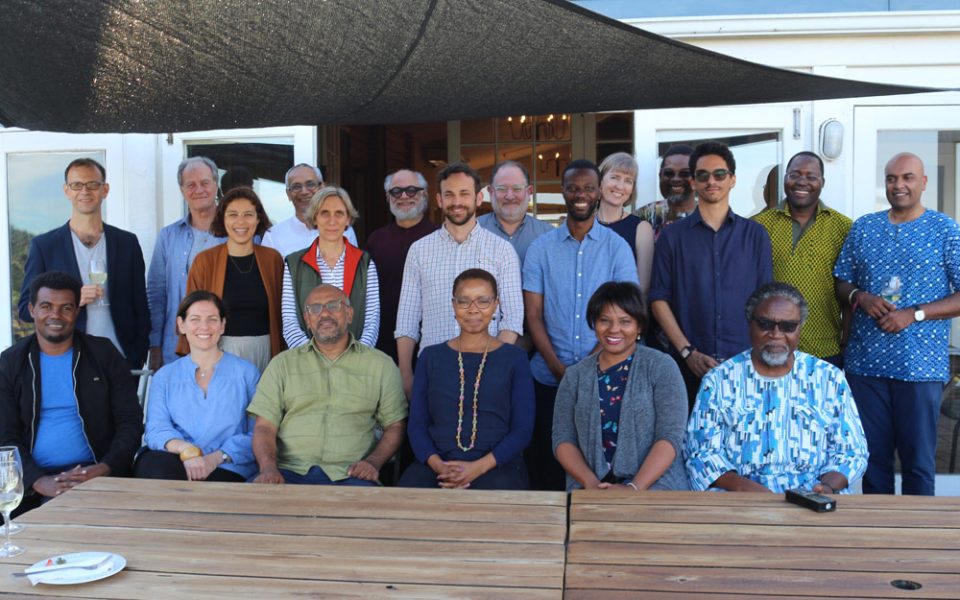
Convening an interdisciplinary and geographically diverse group of humanistic scholars and public intellectuals, primarily from Africa, the Cape Town Global Humanities Curriculum workshop offered a venue for discussing the ideas, methods, and practices of “the global” – both in relation to the local and the regional and as a critical step towards creating an intellectually challenging and institutionally effective global humanities curriculum.
Funded by The Andrew W. Mellon and Volkswagen Foundations, the workshop took place on December 10 and 11, 2018 in Cape Town. It was co-organized by Homi Bhabha at the Mahindra Humanities Center at Harvard University and Premesh Lalu of the Centre for Humanities Research at the University of the Western Cape.
On the first day, Director of the Mahindra Humanities Centre Homi Bhabha outlined a series of suggestive points of departure for the workshop. Bhabha, in recounting a moment in which he was asked to respond to an international workshop in the form of a report, drew out how it is the notion of the curriculum was the organising concept around which the humanities might centre its inquiry into thinking the global in all its manifestations in and out of the university. For Bhabha, the report or the syllabus as it is used in the educational institution could not think outside of the spatial, and it is in the curricular that an emphasis on temporality can be pursued. The curriculum, Bhabha argued, makes something else available — an ethical confidence from its etymology, and a narrativised sense of the ‘way in which heterogenous and contingent issues might come to shape a life like a curriculum’. Such an imagining speaks to issues and constituencies wider than the university or the educational establishment as such and intervenes effectively with civil and political society.
Following the brief of the workshop, a concept of the global in relation to notions of the taxonomic and the tropic were placed on the table. The notions of the taxonomic and the tropic — terms that would come to circulate in discussions over the two days — are set up as a way in which to attend to the changing nature of the university and its increasing corporatization as much as it is also a manner in which to attend to entrenched disciplinary conditions under which the global is imagined. The idea of the global as the humanities is forced to encounter it in the contemporary university, as Bhabha outlined it, is one that must be seen as a presentist entrapment: closed to other forms of interconnectivity historically. Bhabha asked, what is it about the global that had become so marketable? In a sense the global was a failed attempt to think about scale, one that could not escape the entrapments of its own binaries and oppositions. Suggesting that we think the global in particular ways in relation to the taxonomic and the tropic, Bhabha marked the ways in which the global acts as a claim: a claim to inclusion, a claim to justice, and an ethical claim. The global rendered in this way emphasises forms of value and meaning constituted in circulation, and circulation in various kinds.
Bhabha proposed the notion of scale as a central term which could be used to cohere a variety of issues related to the global and to the humanities, and to the work of constituting a curriculum adequate to these problems. For Bhabha, scale is an internal montage of representation and measure, and the scalar is indebted to both the political and the ethical. As such, it is perhaps the appropriate mode through which to ask what kind of pedagogy a global humanities curriculum might espouse. Questions of what it would mean to scale, to change scale, to scale, and to whom and to what such changes would affect were central issues put up for discussion. Bhabha asked, under what historical, institutional, and social pressures should the humanities pursue a different notion of the scalar.
Other issues raised were issues of the sensory, archive, and temporality. For example, the question of sound and affect was raised in the question of building an archive, and what exactly, for whom exactly, and around what exactly the archive related to the project of the curricular might be. Additionally, how might questions of decolonisation — scales and fronts of decolonisation — affect the work of producing a curriculum. These questions were intimately connected to matters of citizenship: what would it mean to talk about the citizen in the current refugee crisis, and alongside notions of the displaced and alterity? Similarly, matters pertaining to the term Global South were raised, and it was asked why the language has not shifted to speaking of Global Souths, given the now shared experiences of urban peripheral life across the world (India and California both share experiences of load-shedding).
Premesh Lalu offered a critical intervention by highlighting a tension between curriculum and university. This tension — which Lalu argued was becoming increasingly apparent as we witness the Kantian university come apart — is part of a tide which has not only come to redefine what the university thinks it ought to be doing now but also what the standpoints of the university are; what it says it is and what it is, now, in relation to the world. Lalu pointed out that through an attention to the ways in which the questions of the global south and the figure of the south had emerged as a very easy reference for an older geopolitics and distribution of knowledge (seen perhaps most tellingly in area studies) that race has been the site of an invention of the university. What is now coming apart in the university is the consequence of an over-dependence on race as the organising principle of the university, Lalu argued, and it is a situation that beckons us to attach the debate on curriculum to the very question of what the university is for. Indeed, as Lalu pointed out, words such as creativity, innovation and invention have been produced to support “fantasies that lead to despair”. What is required, Lalu suggested, is a set of terms invoked in relation to the curricular to counter the ways in which the university functions as a supplementary instrument of governmentality, and inaugurate a different space of invention in the university. Lalu offered three terms with which to work: duration (in the Bergsonian sense and invoked to counter a ‘university overrun by speed’ and to invite ‘pedagogic spaces of encounter with the arts and the aesthetic that may draw out time’), memory (to recover what has been surrendered to informatics in the university and to imagine archive as assemblage instead of storehouse), and sensibility (as a different way of approaching the question of aesthetic reception). Lalu also put on the table three critical assemblages that would need to be rearranged to rethink the problem of race: technology, memory, and ethics of the self. Lalu asked what it would mean to ask for a university that aims towards the unprecedented, and the curriculum as the site where we might set to work to rearrange the university.
To the notions of duration, memory, and sensibility, both Ross Truscott and Jim Chandler provided some input, with Truscott suggesting that the question of sensibility, if read through media theory, offered some ways into thinking about issues of the university and education. It is through the notion of media and medium that Truscott argued the issue of receptive capacity and more specifically the idea of ratio might be attended to more rigorously, an issue that would arise repeatedly in discussions around technology, pedagogy, and the changing circumstances in which the global and the humanities makes itself known. By convening a class with a different ratio of the senses, Truscott suggested, we might move away from a media itinerary or a displacement of race. Later Chandler would draw attention to the ways in which Bhabha’s notions of the taxonomic and the tropic reflect the ways in which a concept of the global must be arrived at in a transitional and translational way, one that might read the concepts of duration, temporality, and knowledge as counter to the university’s speed, simultaneity, and information. Bhabha too argued that it is in duration that the institution might most intimately be reflected, and asked what kind of tempi we are faced with in the institution today, and whether asking what it means to accrue knowledge and make progress in thinking may bring us closer to imagining a curricular temporality. Bhabha brought ethics to bear on the curricular in this moment, suggesting that it is in an ‘ethics of enunciation’ that a ‘position where {one} comes face to face with another’ may ‘bridge the area between individuals and the collective without setting up the binary that all the collective is, is a collection of individuals’.
The question of collectives, and what it would mean to constitute a collective in the context of a flailing university system, was taken up in calls for a more direct ethics of care in relation to the university becoming the site of increased mangerialisation. Helene Strauss underscored the ways in which the university as a negatively affectively charged space rendered the emotional affective work done by women invisible, and how bodies carry archives of relentless care. This echoed Suren Pillay’s observations that what was a telling aspect of the crisis in universities was an inability to know who its publics are, and an inability to produce anything other than a local/universal binary in relation to questions of difference.
A long discussion on the growing problem of plagiarism was routed towards the question of implementation by Sara Guyer, who asked what precisely was imagined as the ‘outcome’ of this project. What we mean when we talk of implementation is somewhere between the abstract and the concrete, Guyer pointed out, and asked whether another idea of the curriculum, a different experience in the classroom, or a proposal for an experience in the classroom that might never come was the goal of the project. In very practical terms, Bhabha suggested that producing a model or a framework was not ideal, and that perhaps a publication might be a first step in imagining where the project might go and how it might be implemented. John Higgins pointed out how implementation in any form would need to come to terms with a cohort of students — particularly in the context of African institutions — who simply could not read, or who did not know the ‘difference between information and knowledge’, drawing attention to the technological moment and its impact on knowledge production.
The question of implementation was therefore felt particularly strongly by colleagues from institutions on the African continent, where colleagues such as John Higgins pointed out the ways in which the very real politico-economic circumstances in South Africa and the discrepancy in funding towards disciplines of speculation such as astrophysics (seen in the Square Kilometre Array) demonstrates the ways in which the university is ‘being engineered into a profit driven machine’. Rose Boswell highlighted the problem of massification, and the ways in which the university is being required to provide more and more support to an increasingly impoverished student body. If anything, Boswell pointed out, a global humanities curriculum would have to respond to the encouragement of the commercialisation of knowledge and would have to teach students how to be ‘citizens of the world’.
The problem of implementation came to rest in questions of method. Here, anxieties around the humanities doctorate circulated, with Bhabha pointing out that perhaps that is what is at stake in the conversations at the workshop. Recalling how difficult it had become to think of the humanities PhD as having much currency, Bhabha noted how students have been encouraged to pursue academic journalism and public writing. It became apparent fairly quickly that this was a matter of curricular importance for colleagues from the continent of Africa, as Harry Garuba noted in his comment on minoritized spaces and their need to ‘tap into high theory’. Remarking that race produces a structure of ranking knowledge, Garuba argued that in order to maintain any sort of legitimacy in relation to the research produced, those who found themselves well within racialised formations have to make specific moves ‘through European high theory’ or ‘you are dead in the water’. A curriculum that would respond adequately to these issues and more, Garuba emphasised, has to keep a vital connection to lived experience. The workshop concluded with an expression of extreme gratitude to both the Andrew W Mellon and the Volkswagen Foundations.
This report was compiled by Next Generation Researcher, Aidan Erasmus.

